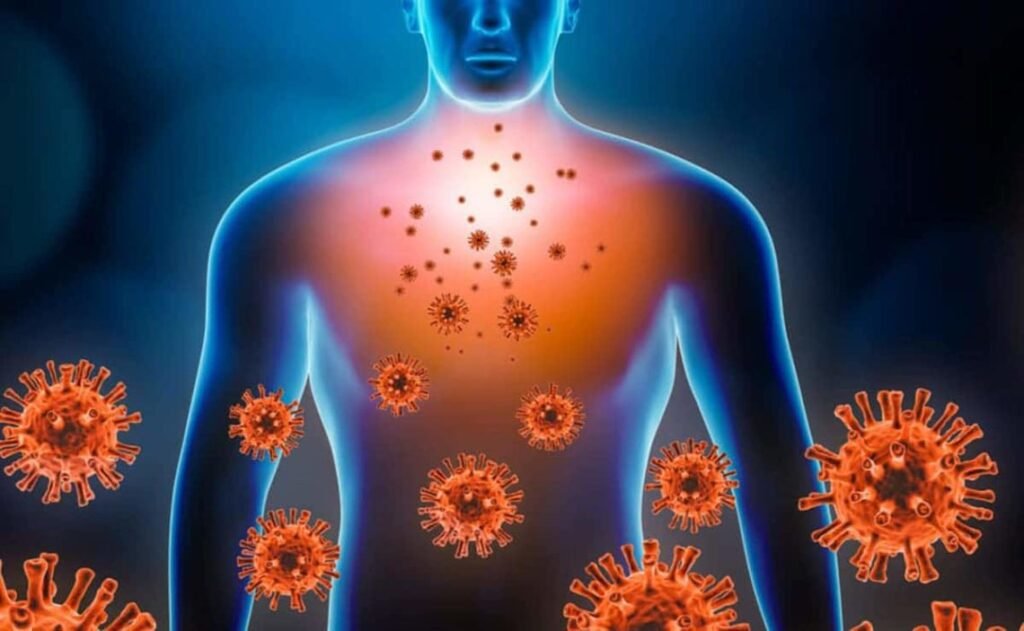How the Immune System Works Explained
How the Immune System Works Explained
Introduction: The immune system is a complex network of cells, tissues, and organs that defends the body against harmful pathogens, such as bacteria, viruses, and fungi. Understanding how the immune system works is crucial for comprehending its role in maintaining overall health and combating diseases. This article provides a comprehensive guide to understanding the immune system, its components, functions, and the processes it employs to protect the body.

- Overview of the Immune System:
- Components of the immune system: innate immunity and adaptive immunity
- Cells involved in immune responses: white blood cells (leukocytes), including neutrophils, lymphocytes, monocytes, and macrophages
- Lymphoid organs: thymus, bone marrow, lymph nodes, spleen, and tonsils
- Immune responses and the immune system’s ability to recognize and distinguish between self and non-self substances
- Innate Immunity:
- First line of defense against pathogens: physical barriers (skin, mucous membranes) and chemical barriers (stomach acid, enzymes)
- Role of phagocytes (neutrophils and macrophages) in engulfing and destroying pathogens
- Inflammatory response and its purpose in neutralizing harmful agents and initiating tissue repair
- Natural killer (NK) cells and their ability to target infected or abnormal cells
- Adaptive Immunity:
- Antigen recognition and the role of lymphocytes (B cells and T cells) in adaptive immune responses
- B cells: production of antibodies (immunoglobulins) to neutralize pathogens
- T cells: activation of cellular immune responses, including helper T cells, cytotoxic T cells, and regulatory T cells
- Memory cells and the long-term immunity provided by the adaptive immune system
- Major Histocompatibility Complex (MHC) and Antigen Presentation:
- MHC molecules: their role in presenting antigens to T cells
- MHC class I molecules and their interaction with cytotoxic T cells
- MHC class II molecules and their interaction with helper T cells
- Importance of antigen presentation in initiating specific immune responses
- Immune System Coordination and Communication:
- Cytokines: chemical messengers that regulate immune responses
- Cell signaling and communication within the immune system
- Lymphocyte activation and proliferation in response to antigen exposure
- Regulation of immune responses to prevent overactivity or autoimmune reactions
- Vaccination and Immunization:
- Mechanism of action of vaccines in stimulating immune responses
- Types of vaccines: live attenuated, inactivated, subunit, and mRNA vaccines
- Importance of herd immunity and community vaccination
- Vaccine development and advancements in immunization strategies
- Immunodeficiency Disorders and Autoimmune Diseases:
- Primary immunodeficiency disorders: genetic defects affecting immune system function
- Acquired immunodeficiency syndrome (AIDS) caused by the human immunodeficiency virus (HIV)
- Autoimmune diseases: conditions in which the immune system mistakenly attacks healthy tissues
- Examples of autoimmune diseases, including rheumatoid arthritis, lupus, and multiple sclerosis
- Maintaining a Healthy Immune System:
- Importance of a balanced diet, regular exercise, and sufficient sleep for immune health
- Avoidance of smoking, excessive alcohol consumption, and stress management
- Hygiene practices to prevent infections and the spread of diseases
- Regular medical check-ups and immunizations for optimal immune system function
Conclusion: The immune system serves as a vital defense mechanism, protecting the body from harmful pathogens and maintaining overall health. Understanding how the immune system works empowers individuals to make informed decisions regarding their lifestyle, hygiene practices, and medical care. By adopting healthy habits and seeking appropriate medical attention, we can support the optimal functioning of our immune system and safeguard our well-being.

